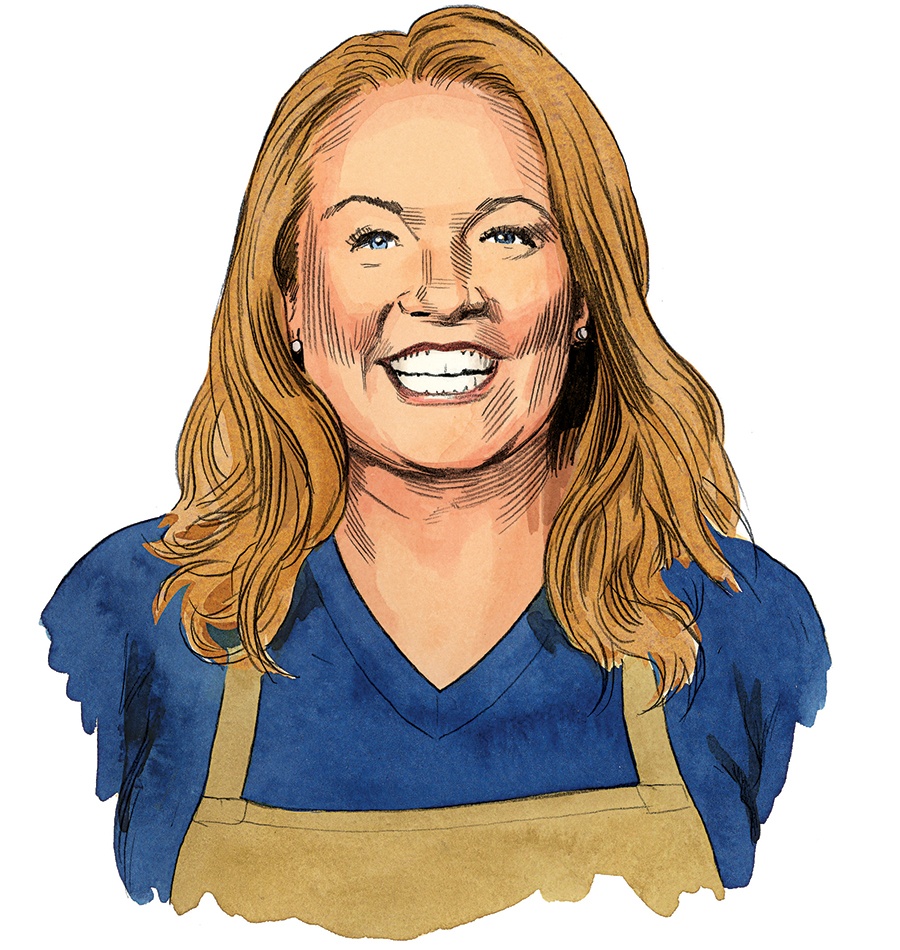Power List Q&A: Big Heart Hospitality Restaurateur Tiffani Faison
Renowned chef and Big Heart Hospitality restaurateur Tiffani Faison dishes on leadership, harassment in the industry, and the coronavirus pandemic.

Photo illustration by Joe McKendry
With the opening of her fourth Fenway-area hot spot, Orfano, last year, Faison cemented her reputation as Boston’s buzziest restaurateur. The megastar chef employs 215 people, with plans to hire 50 more for two new concepts in the High Street Place food hall. All of that, of course, was before COVID-19 slammed restaurant doors shut this spring. But don’t worry—she’ll be back.
As the coronavirus shutdowns crush your industry, is the restaurant community doing anything to help one another?
Very much so. Nationally, statewide, and locally. There’s some good leadership coming from the James Beard Foundation nationally. Locally, there’s a lot of conversation about how to be the most effective. We’re advocating for rent relief and forgiveness, and there’s talk right now of a state bill for disaster relief, because none of our insurance coverage includes this.
You treat activism like it’s part of your job as a restaurateur. Why is that?
I remember talking to a friend of mine a couple of years ago, and she was complaining about people asking her to donate her restaurant’s time, money, or food for causes. And I said, “They’re asking for a lot because we have a lot.” There’s no way we would function without our community. So I think there’s an inherent obligation to make sure we pay that back in any way that we possibly can.
How do you do that?
At the very top line, by making sure this company is a place where people who work here can come and be themselves. In terms of advocacy, we participate in a bunch of community functions and fundraisers focusing on things that are really important to me: LGBTQIA causes, veterans’ groups, women’s causes, and drug addiction. And I’m very vocal about women in work environments, and specifically in restaurants. I’m not known for keeping my mouth shut.
You’ve expressed frustration with the abuse and harassment you’ve seen in Boston’s kitchens. Why do you think it’s been so difficult for the industry to address the issue?
We can’t work on something that we don’t talk about or acknowledge. We have an obligation to begin to have an open conversation about it.
As someone in a leadership position, how are you trying to move yourself and others forward?
There’s some really big structural stuff that I’m thinking about, like working on the front/back pay gap. Sustainability around what we’re bringing into the restaurants. And sustainability of the lives of people who work here. This is an industry that can really take it out of you—that’s why it’s mostly young people. My team includes people that have been with me for 11 years; we’re not 20 anymore. How do we move forward and grow in a way that is challenging, but allows us to have families and kids? Things that we didn’t think about when we first started running the race.


